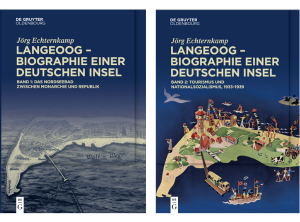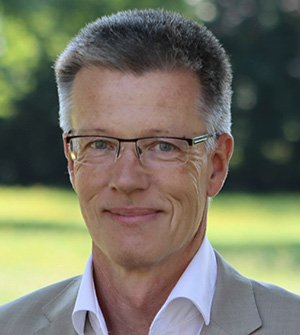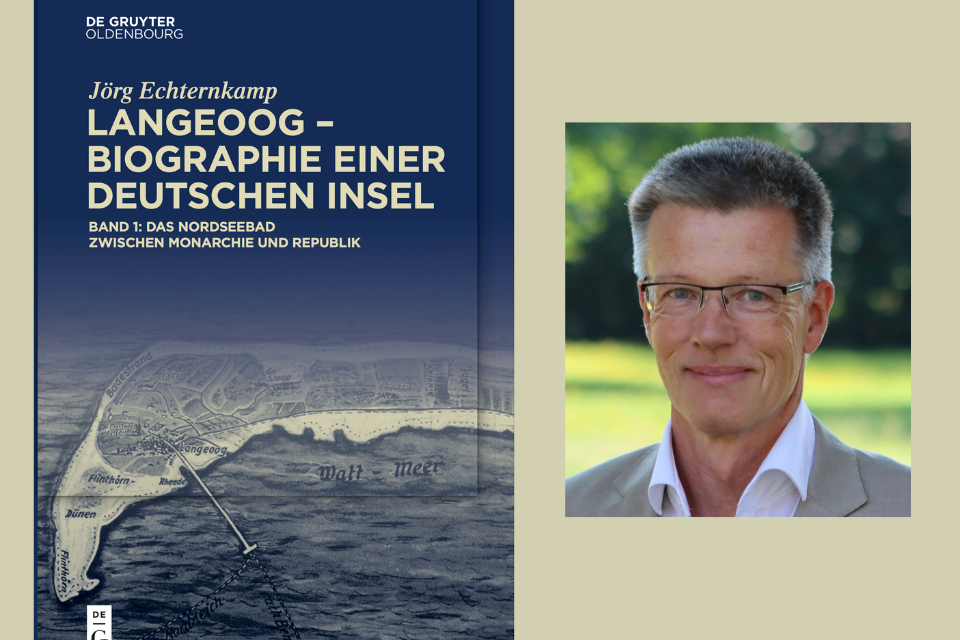“Island of the ‘Volksgemeinschaft’ – Tourism, Antisemitism, and National Socialism on Langeoog”
About the Event
 To what extent did National Socialism play a role at the very edge of Germany, on an island in the North Sea? What did antisemitism have to do with tourism? How did insular space change under the totalitarian regime? Decentralizing the history of nazism, Jörg Echternkamp (Potsdam/Germany) takes the East Frisian island of Langeoog as a case study on the pervasiveness of Nazi ideology and practical experiences in everyday life. Drawing on extensive source material including oral history he uses the concept of “Volksgemeinschaft” to analyze inclusion and exclusion of islanders and tourists alike. On the one hand the political community mobilized its “German” members and their spa guests through parades, festivities, and public lectures, while underlining the loyalty to the new regime symbolically by renaming streets and erecting monuments. On the other hand those who did not belong to the German Volksgemeinschaft, Jewish tourists as well as Jewish boarding house owners were discriminated against and persecuted. At the same time, the Nazi regime chose the island as a favorite place for leisure and recreation of the national youth organization “Hitlerjugend”. During WWII prisoners of war were used as forced laborers to turn the island into a garrison. Today, a war cemetery serves the memory of the more than 110 Soviet soldiers who lost their lives on Langeoog. Echternkamp’s microhistory of a German island, the first of its kind, offers new insight into the enforcement and interplay of nazism, antisemitism, and tourism in Germany at a time when authoritarian nationalism is on the rise again.
To what extent did National Socialism play a role at the very edge of Germany, on an island in the North Sea? What did antisemitism have to do with tourism? How did insular space change under the totalitarian regime? Decentralizing the history of nazism, Jörg Echternkamp (Potsdam/Germany) takes the East Frisian island of Langeoog as a case study on the pervasiveness of Nazi ideology and practical experiences in everyday life. Drawing on extensive source material including oral history he uses the concept of “Volksgemeinschaft” to analyze inclusion and exclusion of islanders and tourists alike. On the one hand the political community mobilized its “German” members and their spa guests through parades, festivities, and public lectures, while underlining the loyalty to the new regime symbolically by renaming streets and erecting monuments. On the other hand those who did not belong to the German Volksgemeinschaft, Jewish tourists as well as Jewish boarding house owners were discriminated against and persecuted. At the same time, the Nazi regime chose the island as a favorite place for leisure and recreation of the national youth organization “Hitlerjugend”. During WWII prisoners of war were used as forced laborers to turn the island into a garrison. Today, a war cemetery serves the memory of the more than 110 Soviet soldiers who lost their lives on Langeoog. Echternkamp’s microhistory of a German island, the first of its kind, offers new insight into the enforcement and interplay of nazism, antisemitism, and tourism in Germany at a time when authoritarian nationalism is on the rise again.
About the Speaker

